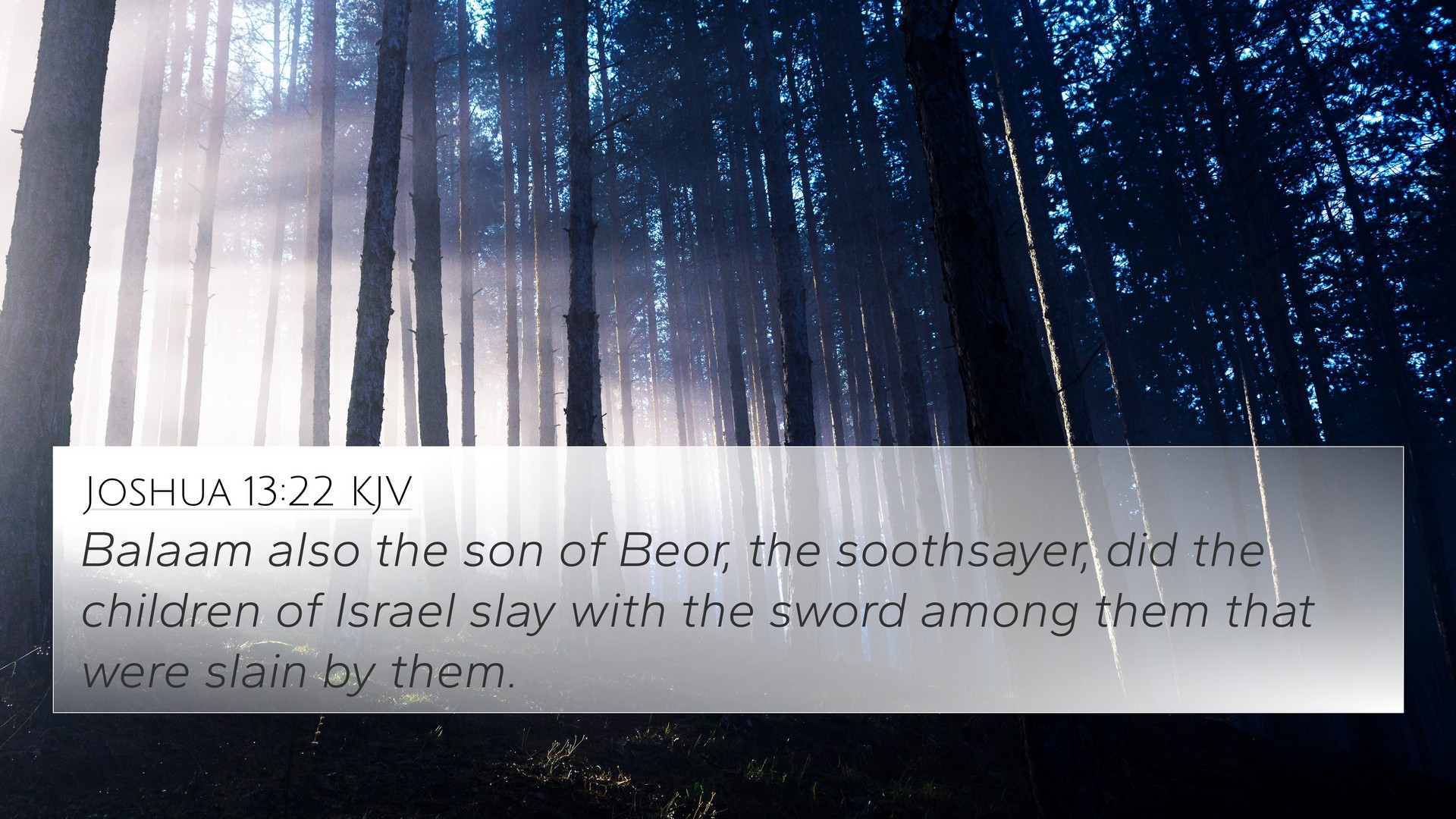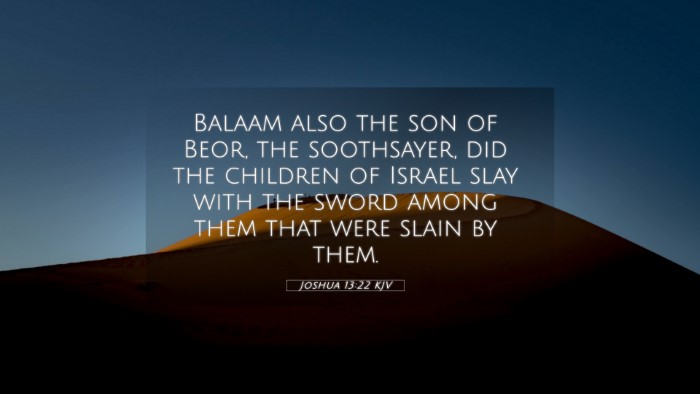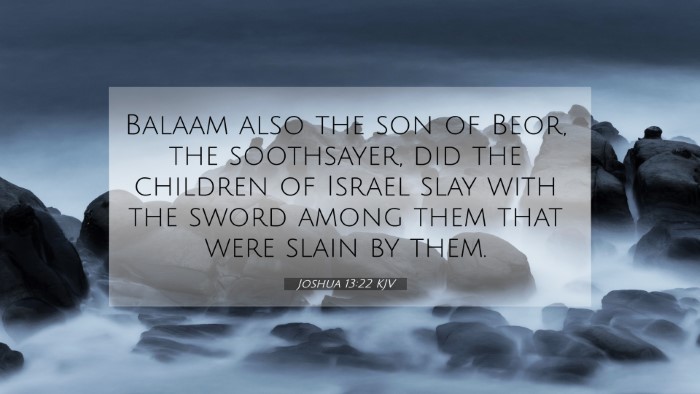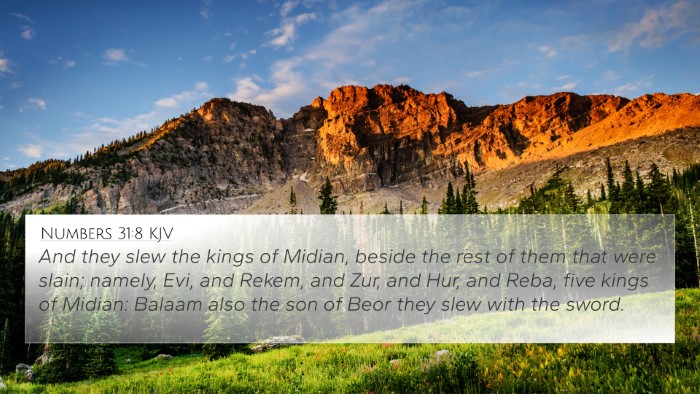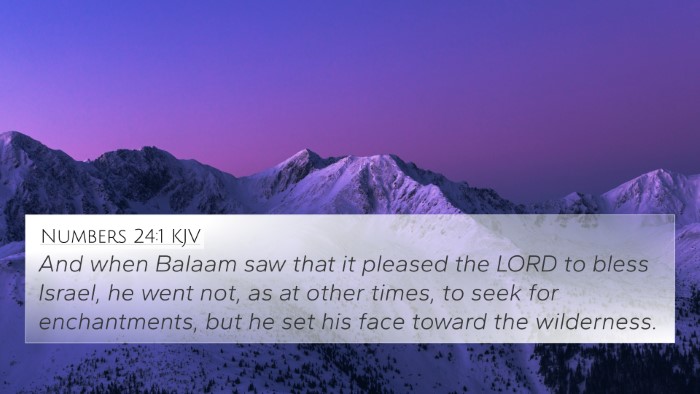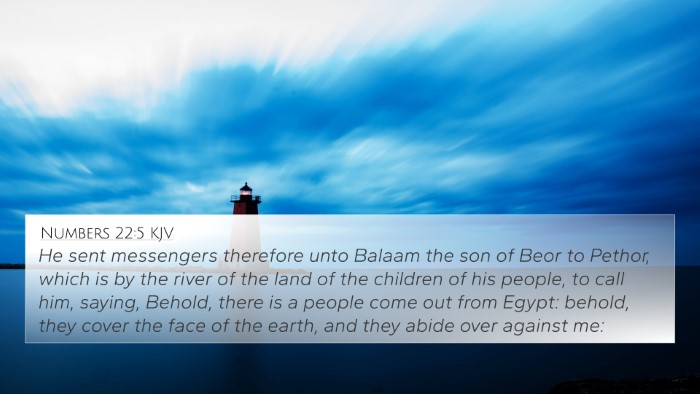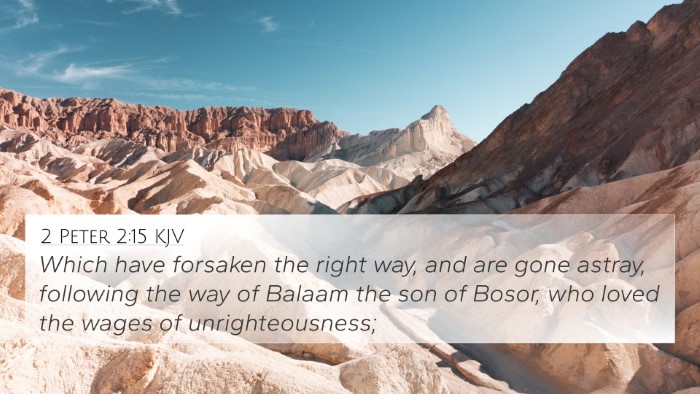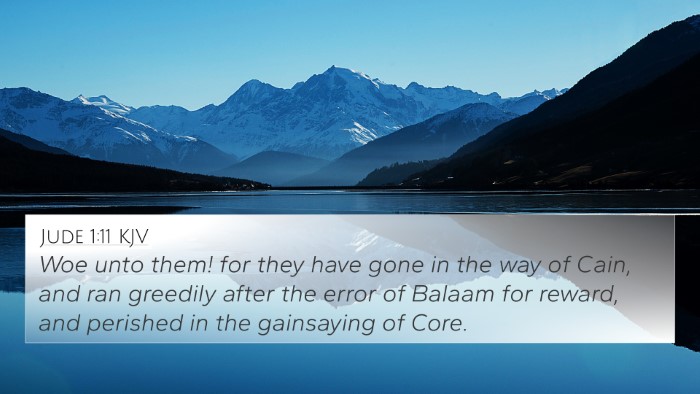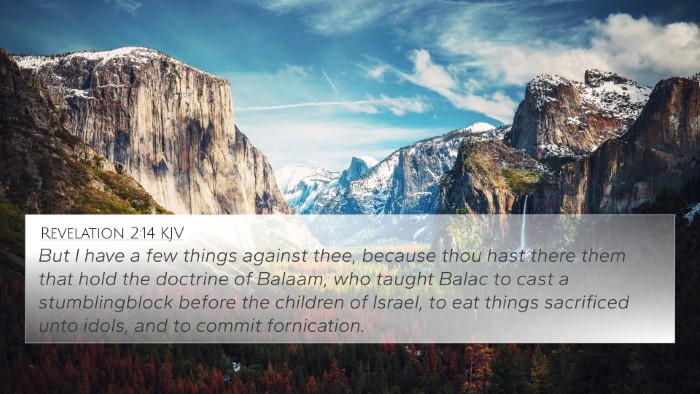Understanding Joshua 13:22
Verse: Joshua 13:22
The verse reads: "And Balaam also the son of Beor, the soothsayer, did the children of Israel slay with the sword among them that were slain by them."
Summary and Interpretation
This verse provides a concise historical account of the fate of Balaam, a character known for his controversial role in the Bible. His death at the hands of the Israelites highlights a significant event during the conquest of Canaan.
Historical Context
1. Balaam's Role: Balaam is recognized mainly in the context of his attempts to curse the Israelites for Balak, the king of Moab (Numbers 22-24). However, he ultimately blessed them instead. His prophetic words were significant, but his later actions, leading to the seduction of Israel into sin, contributed to his demise.
2. The Israelites' Conquest: This verse occurs during the narrative surrounding the conquests led by Joshua, capturing the divine judgment against those who stood opposed to Israel and God's plan.
Thematic Insights
1. Judgment Against Betrayal: The death of Balaam serves as a reminder of the consequences of leading others to sin. Those who turn against God's people, especially after prior knowledge of their divine favor, often face dire consequences.
2. God's Sovereignty in Warfare: The Israelites are depicted as agents of God's judgment upon the nations surrounding them. This underscores the theme of divine sovereignty over nations and the judgment that follows disobedience to God.
Comparative Analysis
- Numbers 31:8: Cross-references this event, recounting Balaam's death during Israel's battle against Midian.
- Revelation 2:14: Mentions Balaam as a figure who taught Balak to entice the Israelites, portraying the long-lasting impact of his actions.
- Deuteronomy 23:4-5: Relays God's disapproval of Moab's actions against Israel due to Balaam's influence.
- Matthew 7:15: Relates to false prophets akin to how Balaam led others into sin.
- 2 Peter 2:15: References Balaam as an example of one who followed the way of greed and destruction.
- Jude 1:11: Categorizes Balaam with other individuals who led Israel astray, emphasizing the consequences of such leadership.
- Psalm 106:28-31: Acknowledges the Israelites' entanglement with idolatry linked to Balaam's influence.
Connections Between Bible Verses
To fully understand Joshua 13:22, we can draw connections to several thematic elements found throughout the Bible:
- Faithfulness vs. Apostasy: Balak and Balaam’s actions represent a form of rebellion against God’s people, similar in theme to the Israelites’ temptations in the wilderness.
- Prophetic Accountability: Balaam serves as an archetype of the false prophet whose teachings and actions brought misfortune, a theme echoed throughout both Testaments.
- God's Protection Over Israel: The narrative displays God’s unwavering protection and planned victories for His chosen people against those who threaten them, literally and spiritually.
Tools for Bible Cross-Referencing
For those studying Joshua 13:22, employing effective tools for Bible cross-referencing can further enrich understanding:
- Bible Concordance: Useful for finding related terms and themes.
- Bible Cross-Reference Guide: Helps identify similar verses across scripture.
- Comprehensive Bible Cross-Reference Materials: Provide insights into how various scriptures dialogue with each other.
Conclusion
Joshua 13:22 serves as a profound reminder of the consequences of leading others into rebellion against God and the extent of divine justice within biblical history. By engaging in a comparative Bible verse analysis and leveraging cross-referenced themes, we gain deeper insights into not only this verse but the broader narrative of scripture.
For those asking, what verses are related to Joshua 13:22? Consider the highlighted connections and how they explore themes of judgment, prophetic integrity, and divine sovereignty. Engaging with these texts enriches the understanding of Joshua 13 and the larger biblical narrative.
